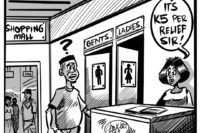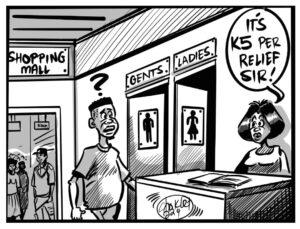THE Cyber Security and Cyber Crimes Bill has passed the second reading stage in Parliament after 83 parliamentarians voted in the affirmative.
The Cyber Security and Cyber Crimes Bill No. 2 of 2021 came up for resumption of debate, Thursday.
The Bill was then subjected to an electronic vote, where 83 members of parliament voted in the affirmative, 52 in the negative and one was in absentia.
After voting, the Bill was read a second time after which Speaker of the National Assembly Dr Patrick Matibini indicated that the committee stage would be taken today, Friday.
On Wednesday, the House failed to vote whether or not the Cyber Security and Cyber Crimes Bill should be read for the second time due to challenges with the information and technology system.
The members of parliament tried to vote orally, but failed as there was an indication of division, which fostered the use of the IT system to determine whether the Bill should be read for the second time.
Three MPs, namely Liuwa UPND member of parliament Dr Situmbeko Musokotwane, Zambezi East UPND member of parliament Brian Kambita and Namwala UPND member Moono Lubezhi had earlier risen on points of order, complaining that they were facing challenges with logging into the e-Chamber system.
Dr Matibini was then forced to interrupt business for the day in order to resolve the challenges.
Various members of parliament had debated on the Bill.
Transport and Communications Minister Mutotwe Kafwaya said 20 amendments were already proposed to the Bill.
“Mr Speaker, 17 members of parliament have debated this Bill, that shows the interest it has stimulated, an important Bill, indeed. Important because security is important for every citizen. This is why His Excellency President Edgar Lungu wants all Zambians to be secured. Mr Speaker, your committee recommended for deferment so that the Ministry of Justice and Ministry of Transport can move amendments in line with stakeholders views. Sir, we have been able to propose 20 amendments already. We have considered the views of the stakeholders. Mr Speaker, I thank you,” said Kafwaya.
And Kasenengwa PF member of parliament Sensio Banda said there was need to enact the Bill in order to stop criminals, who were already committing cyber crimes.
“This Bill must have been moved like yesterday because criminals are already committing these crimes in all highlighted business environments. Mr Speaker, it is surprising that members on the left want the physical security wings to remain in the space whilst criminals are already committing crimes in cyberspace. Our friends on the left were saying that in fact, this Bill is meant for government to check what is going on, but to the contrary, this is meant to trace criminals. Mr Speaker, a special report by Steve Morgan in the latest version of Cybercrime Magazine predicts about US $6 trillion in terms of damage would have been done by 2021,” said Banda.
“It is predicted that annually, cyber crime would have grown by 15 per cent, meaning that by 2025, we would have a damage of $10.6 trillion, which is quite gross. This is only in the economic environment. What about the damage in the political environment, legal environment, social and cultural environment? The damage is enormous! With this, Mr Speaker, this Bill must be supported by all well-meaning Zambians. I am wondering why people are scared to have this Bill enacted. With that said, Mr Speaker, all those opposed to the Bill, I am surprised…With this, I support the Bill.”












